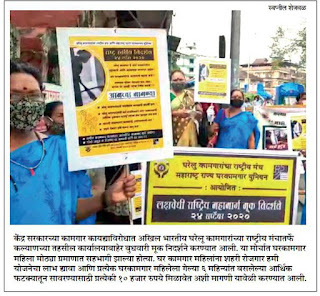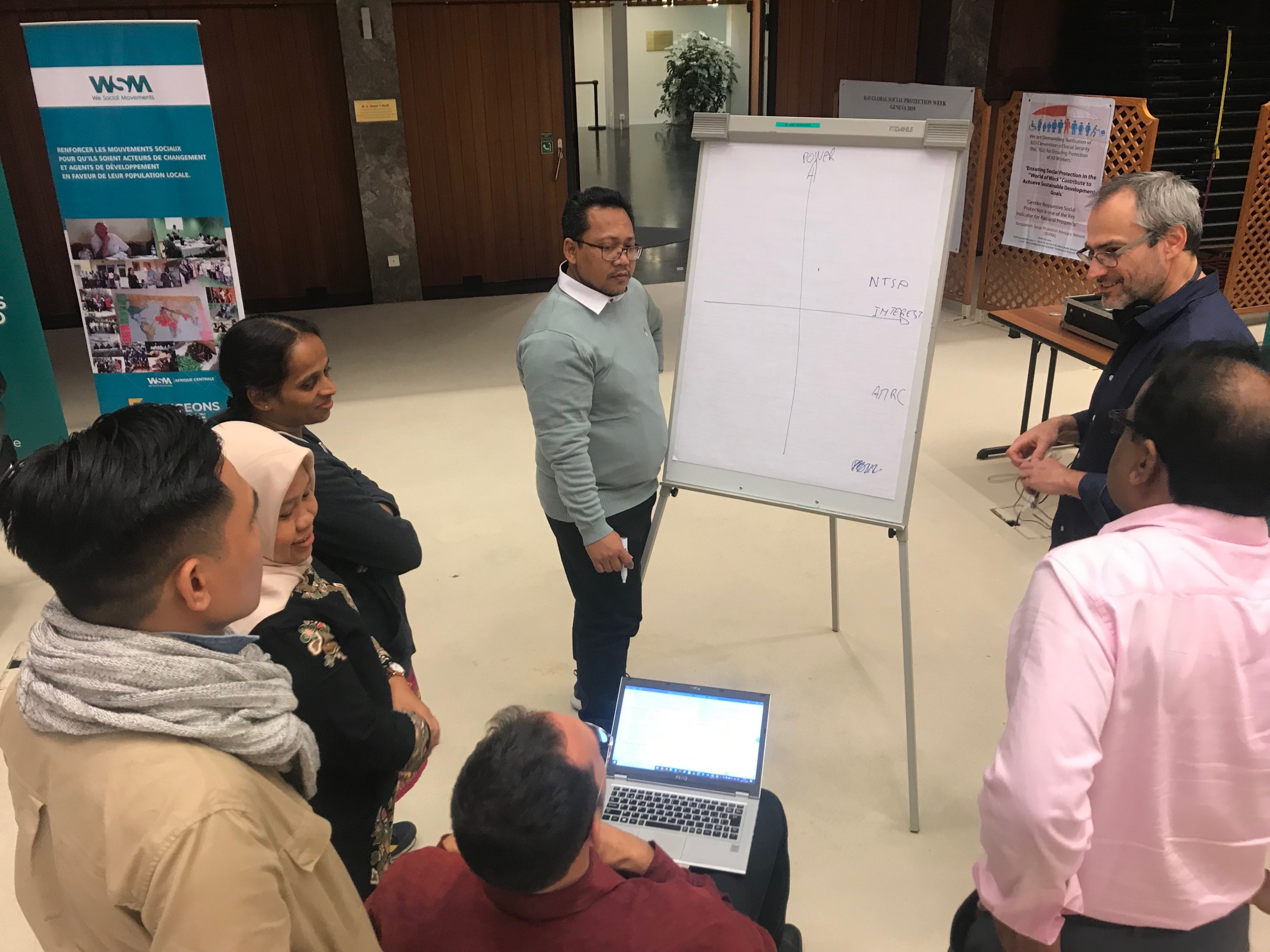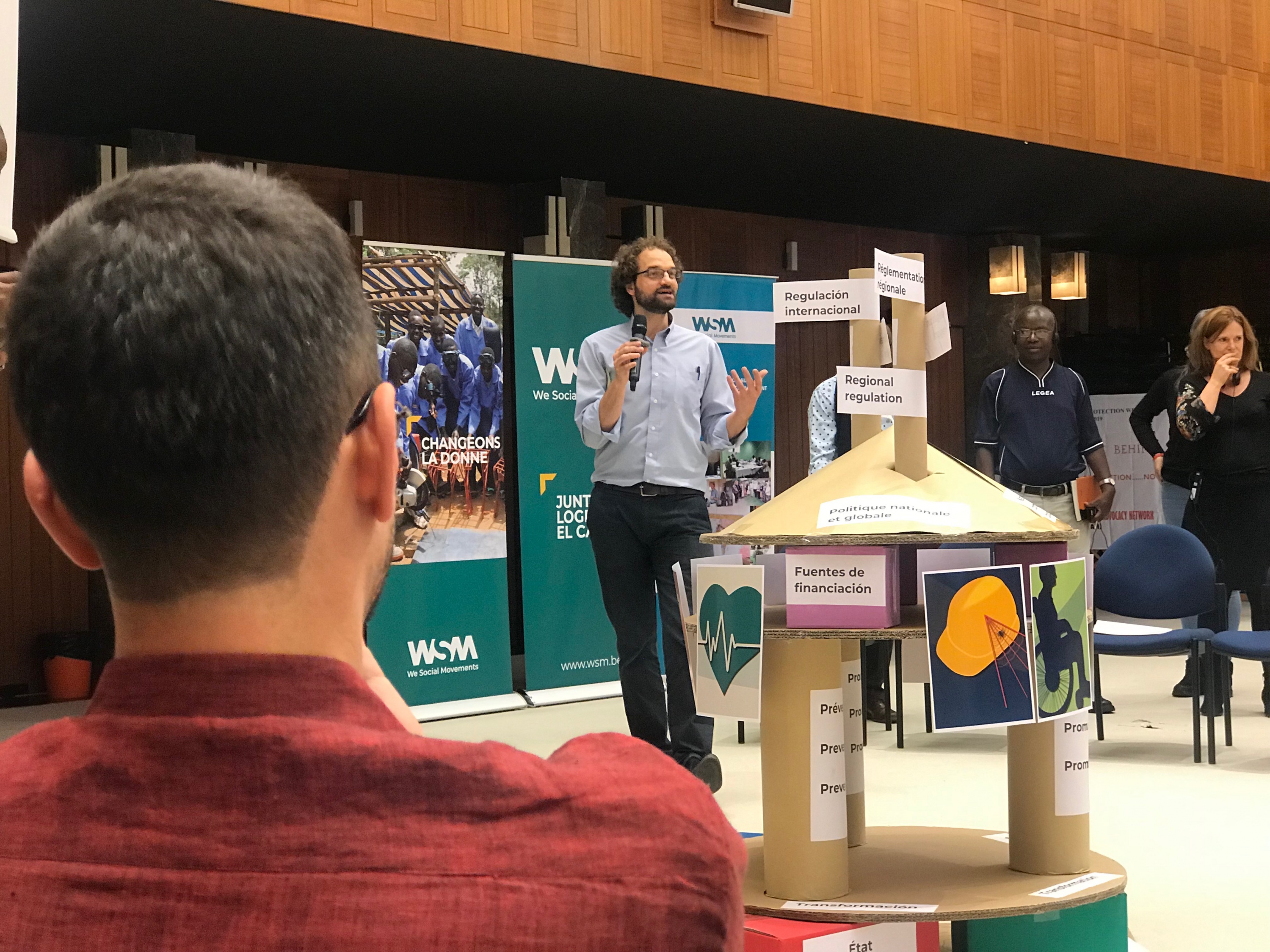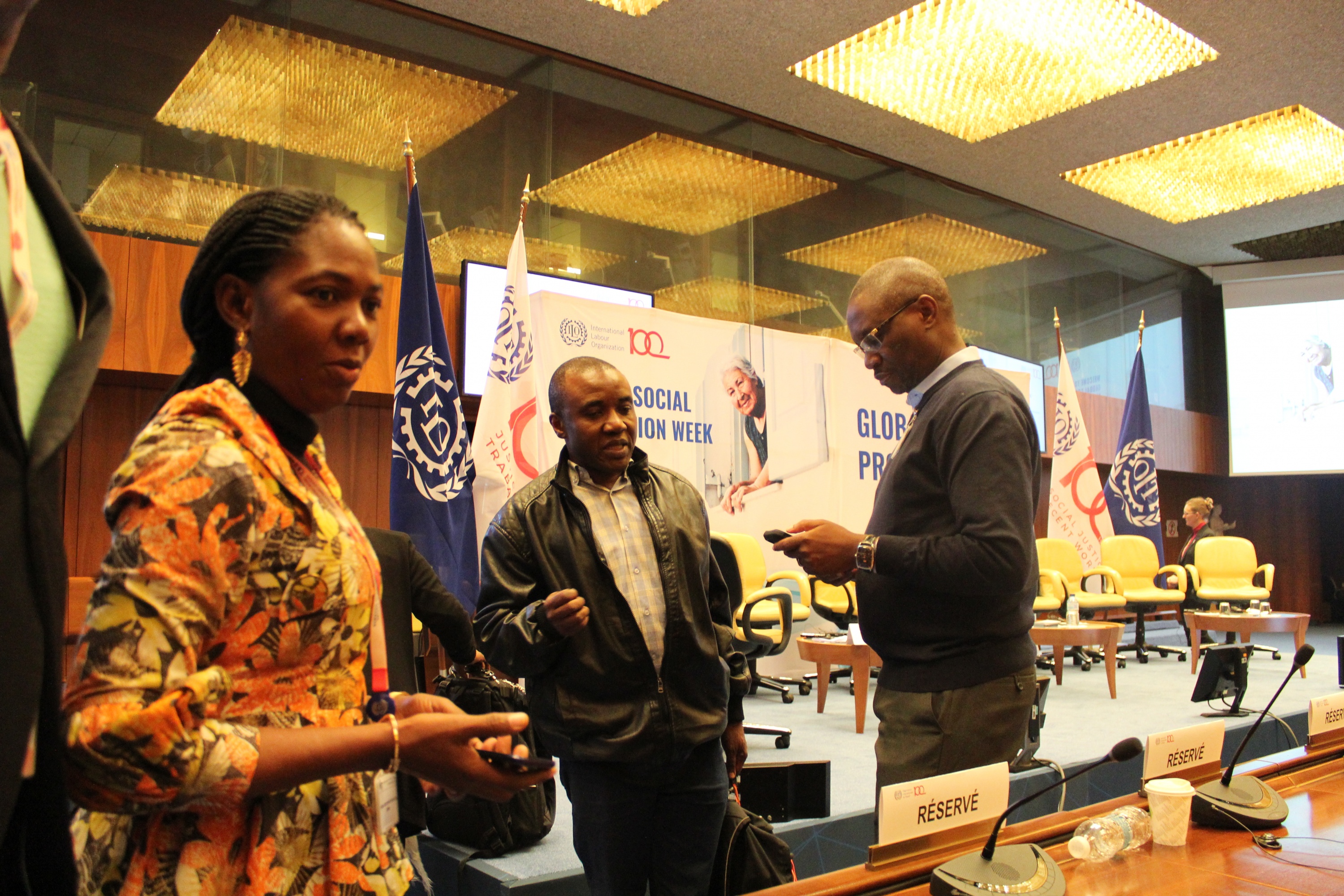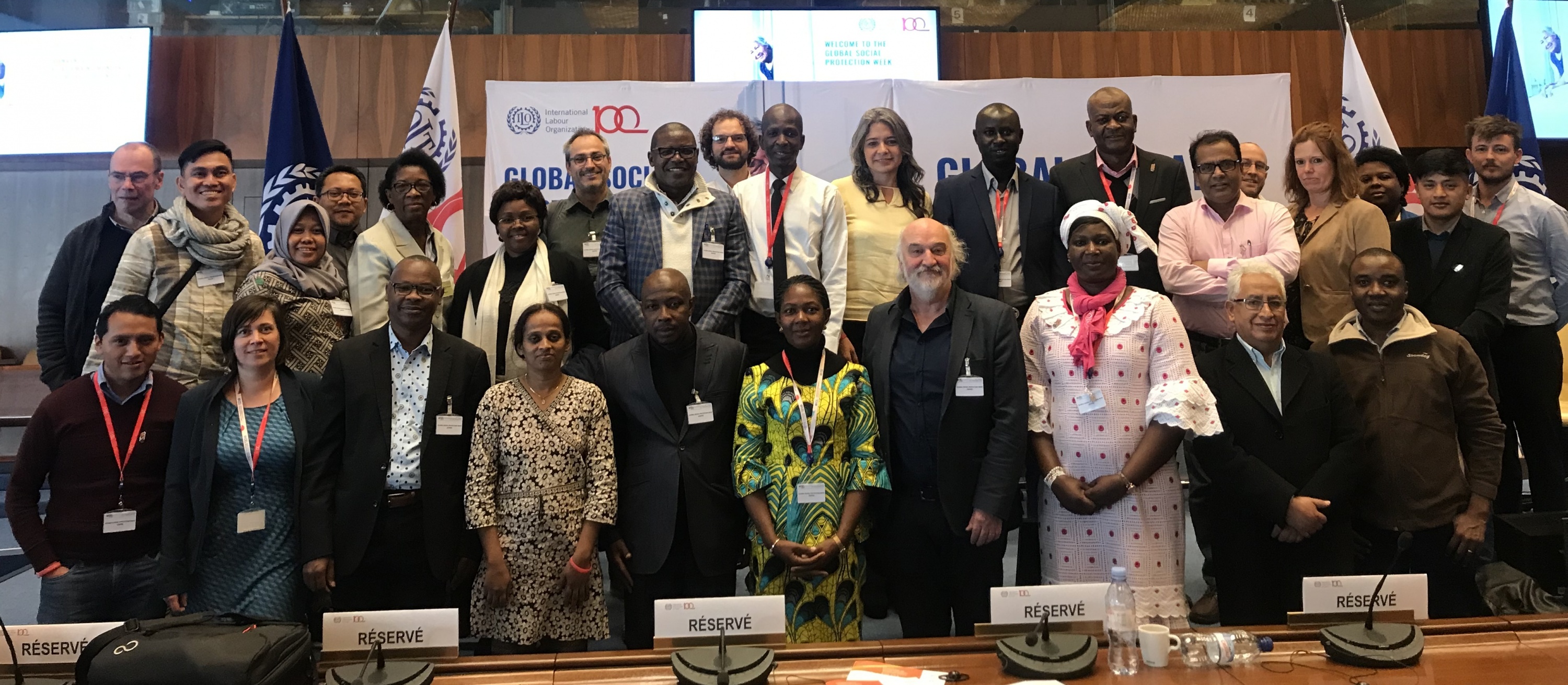In Asia, INSP!R Asia works with 54 organizations of Trade unions (affiliated to ITUC or Global Union Federations), member-based CSOs (such as women’s organizations, youth, people with disabilities, migrant workers, health organizations and mutuality, etc.) and National networks on Social protection. INSP!R Asia has members in 6 countries: Bangladesh, Cambodia, India, Indonesia, Nepal and the Philippines; 4 are Pathfinders countries. We actively participate in various international/ continental events such as Labor20-Civil20, ASEAN People Forum, Asia-Europe People Forum, International Labor Conferences, COP, and now regarding the Global Accelerator.
Trade Unions and Civil Society organizations are important pillars in advocating for state policy making, because they can strengthen accountability, improve the effectiveness and efficiency of programs in its design, monitoring, implementation and evaluation by providing constructive criticism, different perspectives, and alternative problem solving. However, for this to happen, there must be sufficient democratic space for meaningful engagement and social dialogue. What we have observed so far in the 4 pathfinding countries, is that there are differences in the level of democratic space and involvement of trade unions and CSO. While Trade unions involvement is more straightforward because of the existing tripartite mechanism and applying the most representative status of trade unions, this is not the same for the involvement of CSOs. For example, in Indonesia, there are 5 Trade union confederations such as KSBSI which are members of the National committee, but there is no clear representation of CSOs in this committee. However, INSP!R Indonesia/ YPSI (Indonesia Social Protection Foundation) has been invited in the public consultation during the finalization of the GA roadmap, and we’d like to thank BAPPENAS as the leading ministry in Indonesia for this.
2.
From the 2 Asia meetings on GA
that we organized, we’d like to convey the following key messages:
- In the
GA progress report 2023-2024, only 12% of the SDG targets are on track. The
GA is a ‘Rescue Plan’ to save the SDGs with the ambitious goal of
creating 400 million jobs and extending social protection coverage to 4 billion
people by 2030 -just 6 years from now. You can have beautiful dream but even if
100% of GA’s objectives are achieved in 17 pathfinder’s countries -which is not
possible, GA initiative will only create 44 million jobs (11% from
GA objective to create 400 million jobs) and extend social protection coverage
to 962 million people (around 24% of GA objective to extend social protection
coverage to 4 billion people). Furthermore, since the GA was launched in Sept
2021, only 21 million USD has been collected from 3 countries: Belgium, Germany
and Spain. One third of this budget is allocated for the management of the GA by the
UN agencies and World Bank. Please remain realistic.
- While GA seeks to expand the
coverage of social protection, the new business model of the
platform economy is massively leaving millions of workers out of the social
security system. For example, in Indonesia of the 20 million workers working in
the platform economy, only 1% are covered by social security. We call on GA to pay
more attention to the ‘missing
middle’ and the ‘non-take-up’
groups, namely the working poor, workers in the informal economy, migrant and
domestic workers, caregivers, home-based and self-employed, people with
disability, as well as workers adversely affected by climate change, automation
and AI. GA does not work in a vacuum, there are changing contexts that we need
to adapt to.
- Our network advocates for
Climate reparations based on historical emissions. The
Loss and Damage Fund must be able to contribute to the development of
Adaptive Social Protection and strengthen people’s resilience. The devastating
impacts of climate change are unbearable for countries like Nepal which are
vulnerable to avalanches or flash
floods -like those that occurred last week in Kathmandu, or 20
typhoons a year in the Philippines, or the impact of slow onset-event such
as rising
sea-levels in Indonesian archipelago, which makes 90% of Indonesia’s sea
areas dangerous for small boats.
- We also want to see debt
cancelation that would provide fiscal space to the poor countries, and
progressive and fair taxes for the private sector and the super-rich.
In a multipolar
world where human security is a priority for many countries, we must be more
innovative in our approach. How reassuring it is that this GA initiative can
reverse the deteriorating situation in terms of employment and social
protection, amidst declining respect for international humanitarian and human
rights law, as well as a weakening of UN institutions. The GA initiative is a ‘Rescue
Plan’ to save the SDGs; therefore, we can’t act like it is ‘business as
usual’.
Thanks, Bismo Sanyoto, INSP!R Asia











